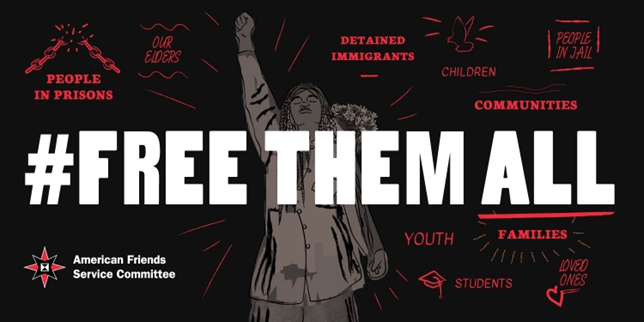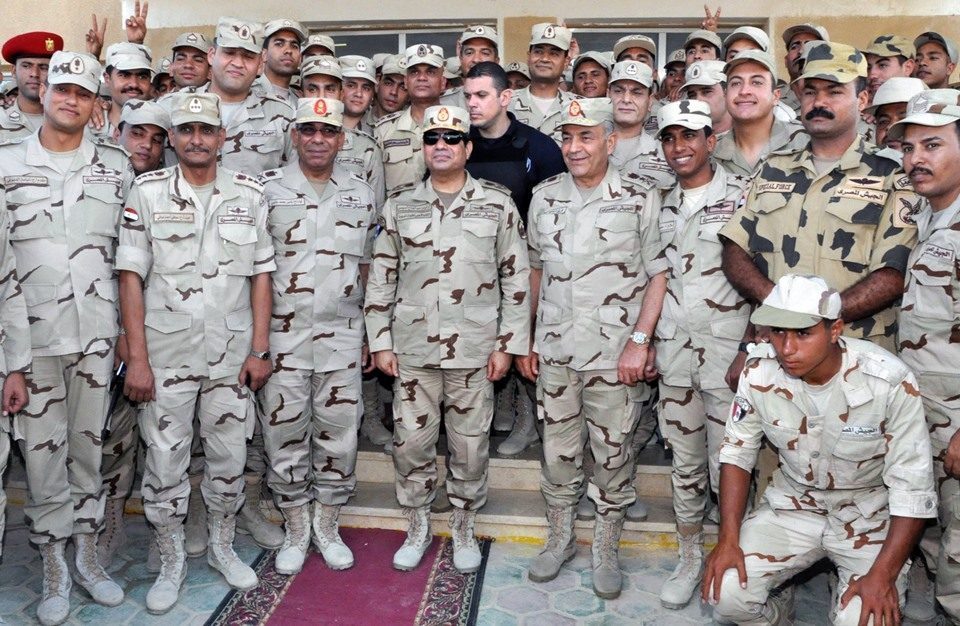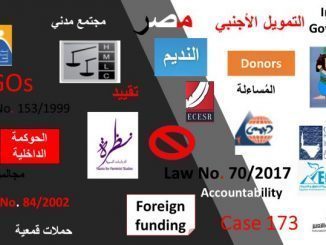
The plight of Egypt’s political prisoners sparks a global human rights campaign with #FreeThemAll hashtag circulating widely online, as human rights turns into a key issue at UN climate change conference in Sharm El Sheikh
Widespread global support for Egyptian political prisoners has been flooding social media under the hashtag #FreeThemAll, amid the United Nations Climate Change Conference, or Cop27, being held in Sharm el-Sheikh.
Online users are pictured wearing white clothing, the dress code for prisoners in Egypt, in solidarity with detainees.

The hashtag features in calls for the release of several high-profile prisoners, including the political activist Alaa Abdel Fattah, the lawyer and human rights defender Mohamed El-Baqer and the blogger Mohamed “Oxygen” Ibrahim.
While it is unclear how many political prisoners exist in Egypt, human rights groups estimate that there are at least 60,000, amounting to about half of the jailed population, many of them accused of “supporting terrorist groups” and “spreading fake news”.
As world leaders gathered for the summit in the Red Sea resort, many members of human rights groups and activists have taken to the streets around the conference area, calling for the release of the prisoners, shouting their names and insisting that there can be no climate justice without establishing human rights.
Authorities and intelligence services control nearly half of Egypt’s popular media, with the rest owned by pro-government businessmen, according to Reporters Without Borders.
Those attending the summit this week found that access to several news and rights group sites were blocked.
Outside of Egypt – from signs calling on the release of prisoners to demonstrations on the streets – there has been plenty of international pressure for the removal of restrictions placed on freedom of speech and press.
Despite Egypt being signatory to the International Covenant on Civil and Political Rights, President Abdel Fattah el-Sisi has been accused by Human Rights Watch of leading the country’s worst campaign against human justice in its modern history.
Rights groups say security forces have regularly engaged in human rights violations without consequences, while discrimination in Egypt is rampant, especially towards women, and other vulnerable communities and minorities.
Cop27, a public relations campaign
On 20 October, Amnesty International slammed Egypt’s public relations campaign to cover prisons’ inhuman conditions, notably Badr 3 Prison.
Amnesty castigated the ‘inhuman conditions’ at Egypt’s new jail, Badr 3 Prison, where relatives, lawyers of inmates at Badr 3 facility report insufficient food, clothing and books, inadequate medical care, bans on family visits
Badr 3 Prison is one of Egypt’s newest prisons, presented as a model by authorities, but unfortunately it has only replicated “cruel and inhuman conditions” in facilities previously used to house political opponents, according to Amnesty.
Amnesty secretary general Agnes Callamard accused the Egyptian government of seeking to conceal the “awful reality” of its treatment of prisoners, including dissidents, as it prepares to host world leaders for the COP27 UN climate change conference next month.
“The Badr prison complex opened to great fanfare by the authorities, as if the new facility signified an improvement to Egypt’s human rights record. Instead, prisoners are facing the same human rights violations that have repeatedly blighted older institutions,” Callamard said.
Recorded violations –- gathered from prisoners’ relatives or lawyers –- included lack of access to sufficient food, clothing and books, inadequate medical care, and bans on family visits.
According to the London-based watchdog, there has been at least one death since prisoners began being transferred to the new prison earlier this year. El-Sayed al-Sayfi, 61, died on October 5, within days of his transfer.
The Badr prison, some 70 kilometers (45 miles) east of Cairo, was opened in October last year along with the Wadi al-Natrun Reform and Rehabilitation Center, where jailed Egyptian-British activist Alaa Abdel Fattah completed 200 days on hunger strike this week.
Egyptian officials insist the new facilities are a massive step forward. Critics charge they are an attempt to whitewash the government’s treatment of its 60,000 political prisoners as the climate change conference puts it in the international spotlight.
“Ahead of COP27, Egypt’s PR machine is operating on all cylinders to conceal the awful reality in the country’s jails, where prisoners held for political reasons are languishing in horrific conditions,” Callamard said.
“But no amount of PR can hide the country’s abysmal human rights record that demands real reform from the government.”
Cairo has faced frequent criticism of its human rights record since then military chief, now President Abdel-Fattah el-Sissi ousted his Islamist predecessor Mohamed Morsi in 2013 and launched a crackdown that first targeted Islamists before widening to curtail all public space for dissent.
Advocacy groups confirm that there are now about 60,000 political prisoners in Egypt, many of them held in brutal conditions and overcowded cells.



